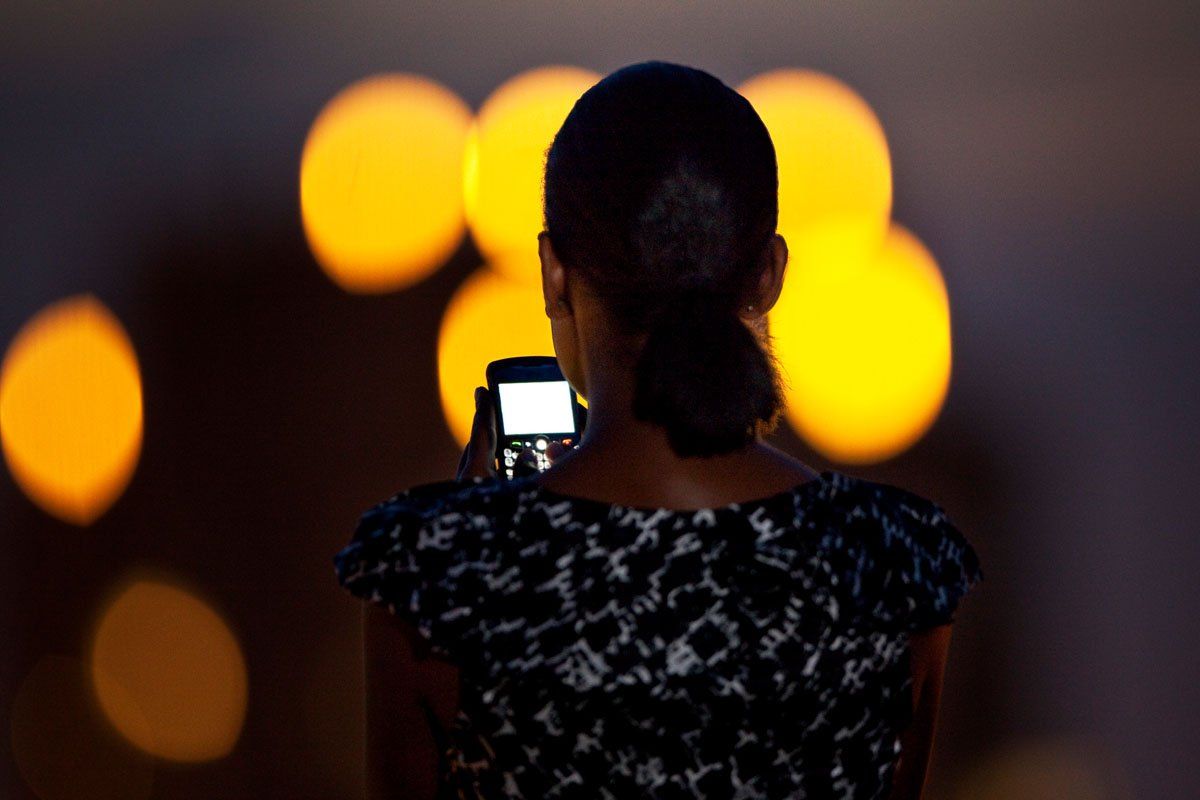
How many times a day do you check your email? When you wake up? Before bed? A dozen times in between? If you're like many of us, the red blinking light of a BlackBerry is the first thing you see each morning—you've got mail!—and the last glimpse of color to fade out before bedtime. It's constant and nagging—yet most of us say we can't live without it. Add Twitter, Facebook, and the rest of our social-media obsessions to the mix, and the technology that was supposed to simplify our lives has become the ultimate time-suck: the average teen spends more than seven hours a day using technological devices, plus an additional hour just text-messaging friends.
The advantage to all that gadgetry, of course, is connectedness: email lets us respond on the go, and we are in touch with more people during more hours of the day than at any other time in history. But is it possible we're more lonely than ever, too? That's what MIT professor Sherry Turkle observes in her new book, Alone Together, a fascinating portrait of our changing relationship with technology. The result of nearly 15 years of study (and interviews with hundreds of subjects), Turkle details the ways technology has redefined our perceptions of intimacy and solitude—and warns of the perils of embracing such pseudo-techno relationships in place of lasting emotional connections.
Turkle talks to high-school students who fear having to make a phone call, and elementary- school children who become distraught when their toy robot pets "die." She wonders how her daughter will remember their relationship 40 years from now, if every long-distance communication between them happens via text message. But for Turkle, a psychologist by training, the biggest worry is what all this superficial engagement means for us developmentally. Is technology offering us the lives we want to live? "We're texting people at a distance," says the author, the director of the MIT Initiative on Technology and Self. "We're using inanimate objects to convince ourselves that even when we're alone, we feel together. And then when we're with each other, we put ourselves in situations where we feel alone—constantly on our mobile devices. It's what I call a perfect storm of confusion about what's important in our human connections."
What can't be denied is that technology, no matter its faults, makes life a whole lot easier. It allows us to communicate with more people in less time; it can make conversation simple—no small talk required. It can be therapeutic: robots are now used to help care for the elderly; in Japan, they're marketed as a way to lure addicts out of cyberspace. But it can also be seductive, providing more stimulation than our natural lives make possible—our days suddenly an interconnected chain of messages and connections and constant stimulation. (Compared with a hundred retweets and a flurry of text messages, a single conversation over dinner seems awfully boring.) "The adrenaline rush is continual," Turkle says of our wired lives. "We get a little shot of dopamine every time we make a connection." One high-school student she spoke with put it simply: "I start to have some happy feelings as soon as I start to text."
But are any of those feelings on par with the kind we feel when engaged in real, face-to-face intimacy? Online, you can ignore others' feelings. In a text message, you can avoid eye contact. A number of studies have found that this generation of teens is less empathetic than ever. That doesn't spell disaster, says Turkle—but it does mean we might want to start thinking about the way we want to live. "We've gone through tremendously rapid change, and some of these things just need a little sorting out," she says. If she has her way, the dialogue will start here—and not just on somebody's computer.
Follow the author on Twitter.
Uncommon Knowledge
Newsweek is committed to challenging conventional wisdom and finding connections in the search for common ground.
Newsweek is committed to challenging conventional wisdom and finding connections in the search for common ground.
About the writer
To read how Newsweek uses AI as a newsroom tool, Click here.








